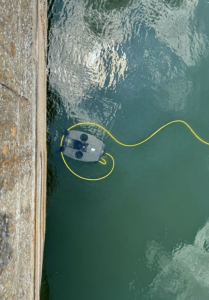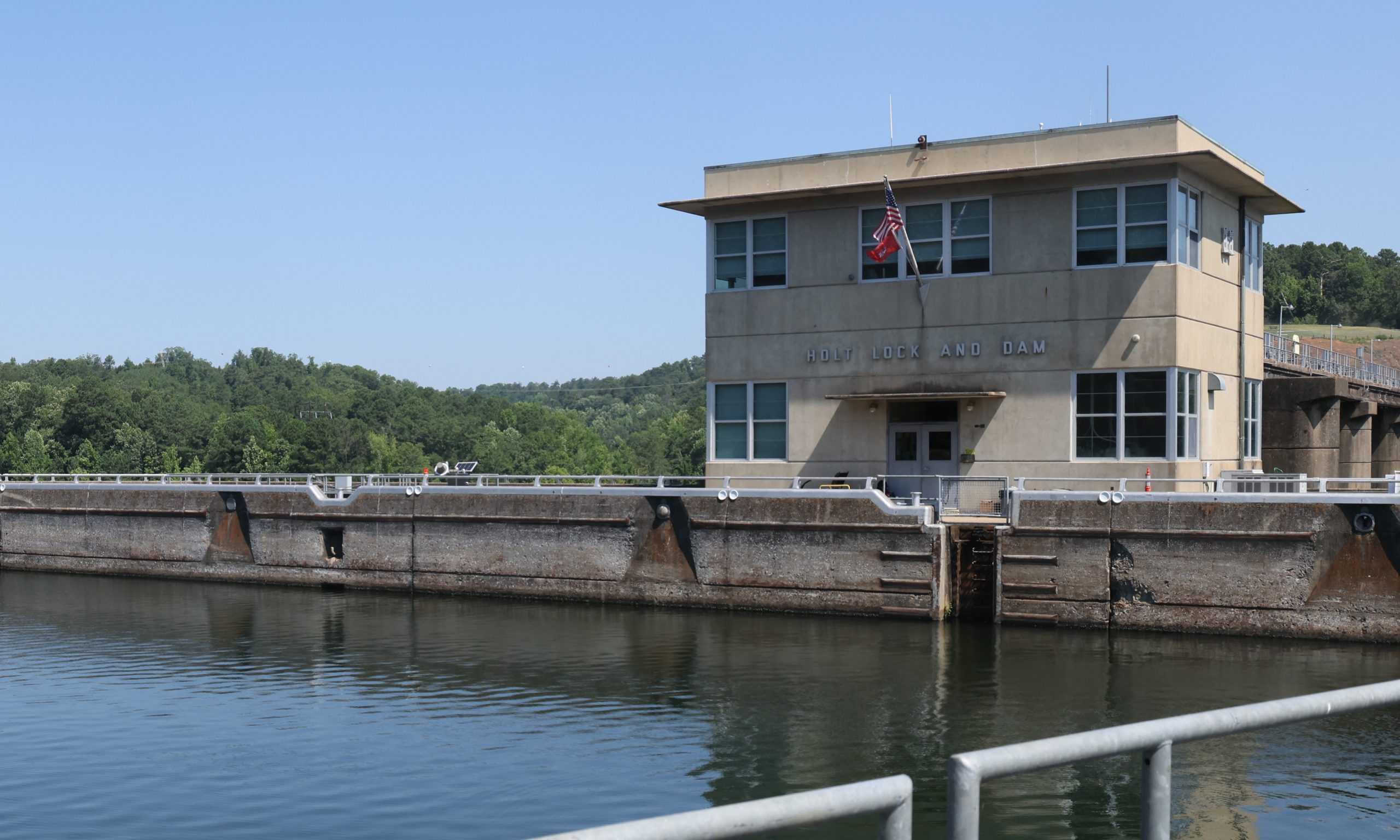Holt Lock Facing Months-Long Closure
View SourceHolt Lock Facing Months-Long Closure
The Mobile Engineer District is moving closer to identifying temporary and permanent fixes to the monolith instability issue that forced an emergency closure of Holt Lock on the Black Warrior River in Tuscaloosa, Ala., June 22.
Cracks in the monolith and a river-side culvert have led to water ingress that, under pressure, is causing the monolith to move. Mobile District engineers are planning to design and install steel bulkheads, essentially sealing off the cracks from water pressure during lock operations.
In a July 10 call with industry representatives and waterway stakeholders, Nelson Sanchez, operations division chief for the Mobile District, said Corps officials have met with the Tennessee Valley Authority (TVA), R&D Maintenance and the Corps’ Regional Rivers Repair Fleet (R3F), all of which are being considered for the repair job.
Currently, the Corps is sticking with a three- to five-month closure estimate, with the hopes of moving that timeline up a bit.
“We had a really good meeting with TVA,” Sanchez said. “They understand schedule is the key, not cost, so they’re refocusing on that timeline they gave us.”
Nelson said the Corps inspected the lock chamber with a remotely operated vehicle, which revealed additional deterioration.

“They discovered additional cracking in the culvert floor, so over the last two months there has been a lot of activity on this monolith, which is very concerning,” Sanchez said. “There may be some changes to the anchoring of that monolith due to the cracking of the floor of the culvert.”
Sanchez was very open in welcoming stakeholder input with regard to repair concepts and material acquisition.
“We can provide those names to R&D, and they can coordinate with those folks to be able to see what kind of schedule we can get from them,” Nelson said.
The takeaway is clear: on the heels of a four-month closure at Demopolis Lock at the lower end of the Black Warrior-Tombigbee and Tennessee-Tombigbee waterways, operators and producers are in another tough spot, with many of the state’s top coal mines and steel mills located above Holt Lock in northeast Tuscaloosa and Jefferson counties.
Officials from Parker Towing Company, headquartered on the right descending bank of the Warrior River across from downtown Tuscaloosa, have floated the idea of trucking coal from upriver mines and loading it onto barges that would be parked along the batture adjacent to Holt Lock’s land-side guide wall.
“We’re just trying to keep commerce moving,” said Chas Haun, executive vice president of Parker Towing.
In that scenario, a conveyor would move coal from trucks and into hopper barges parked alongside the lower guide wall.
“When Bankhead came off its gates, they did exactly that,” Haun said. “They transloaded it with a crane barge and belted it around the lock.”
Haun admitted there are some environmental questions that would have to be answered, along with some real estate hurdles. For that kind of operation, the Corps would have to go through a competitive bid process.
“That’s fine,” Haun said. “We’re not in this to make money. If somebody else were to win it, that’d be perfectly fine with us. We just want product in barges.”
Another obstacle is security at the lock itself. Corps facilities like Holt Lock require visitors to pass a background check. Most people in the maritime industry qualify with a TWIC card, but not all truck drivers have had to pass a background check.
Wynne Fuller, president of the Warrior-Tombigbee Waterway Association, said both his organization and the Alabama Mining Association are interested in hearing the extent of the maintenance backlog on the system, then communicating that need to Congress.
“I’ve heard we need to double last year’s budget, which would be on the order of $80 million,” Fuller said. “We’re going to look at that carefully and make sure $80 million is practical for the Corps to execute in a given year and ensure that it’s really and truly able to be applied to the issues that threaten reliability.”


